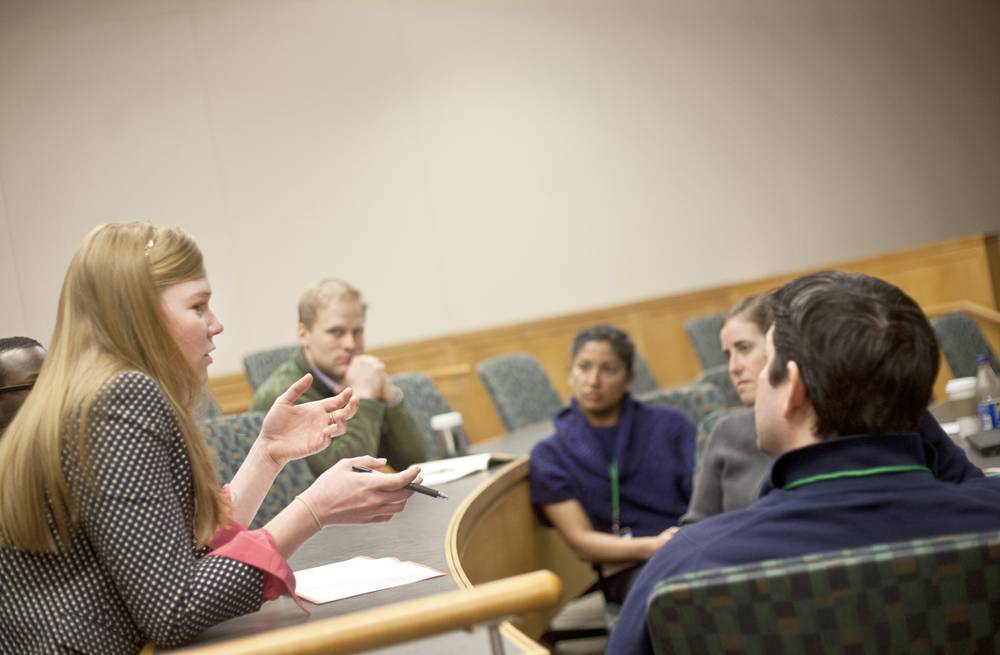When Big Corporations Help Small Farmers
Panel concludes 2014 Business & Society Conference.

The keynote panel at the 2014 Business & Society Conference introduced students to Partners in Food Solutions, a non-profit organization that connects agribusiness giants to small-scale growers.
The annual Tuck Business & Society Conference concluded last week with a panel discussion on Partners in Food Solutions (PFS), an innovative nonprofit organization that connects volunteers at some of the world’s biggest food corporations with small-scale farmers and food processors in the developing world.
The panel featured PFS chief executive officer Jeff Dykstra, General Mills vice president John Mendesh, and Cargill vice president Pat Rogers. The discussion was moderated by Tuck professor Andrew King.
In 2008, Mendesh asked a large group of General Mills employees if they would like to share their technical expertise to improve food security in the developing world. Four hundred people raised their hand and the company soon began working with food processors in Africa. Three years later, Cargill and DSM joined the effort and the three companies collaborated to form Partners in Food Solutions. Since then, PFS has worked with 60 small businesses on 225 projects in Kenya, Malawi, Tanzania, and Zambia. Last year, the multinational food equipment company Buhler signed on as a corporate partner.
One notable example of how PFS works is its partnership with Project Peanut Butter (PPB). PPB is a nonprofit organization that makes ready-to-use therapeutic food for malnourished children. The product is distributed in Malawi, Sierra Leone, and Ghana. PFS helped the organization save money in production and packaging and designed new processing lines in Malawi and a new plant in Sierra Leone.
The companies benefit from these sorts of endeavors in numerous ways. Mendesh and Rogers explained that offering volunteer opportunities through PFS has improved employee recruiting and retention. “One of our key goals is engaged employees,” Rogers said. “Employees want to apply their learning to help somebody else in the world, and this is a great outlet to do that.”
But there are bottom-line oriented reasons, too. By helping growers in new markets, Cargill is building a network of suppliers for its customers. Buhler is building a future base of food processors who will need its equipment in their factories. “People used to think there was this bifurcation where you’d either go into business or help the world,” Dykstra said. “That doesn’t exist anymore. We can do both at the same time.”
The Business & Society Conference is a student-organized event that features speakers and sessions on using business as a lever for societal change. This year, the conference explored how business can make an impact in the social sphere. There were sessions on social impact bonds, climate change, disaster response, and social entrepreneurship, among others. The conference is supported by the Tuck Center for Business & Society.